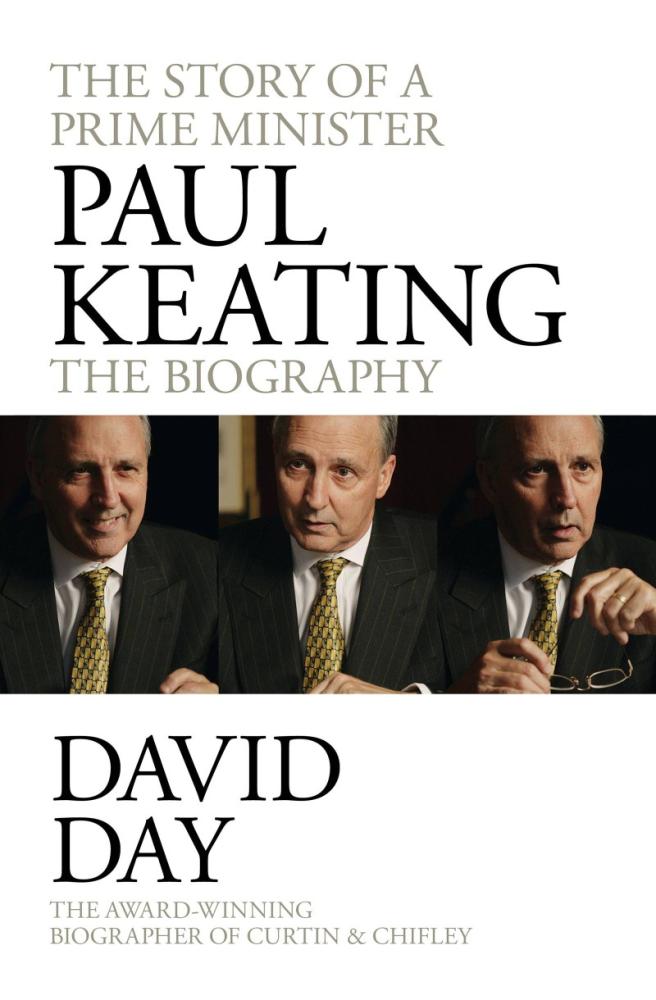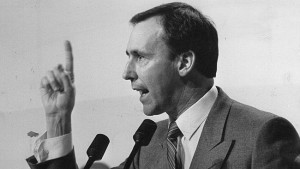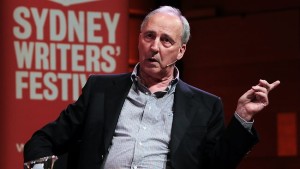Bound to be one of the most significant Australian political books of 2015, <em>Paul Keating: The Biography </em>by David Day is arguably the most substantial biography yet of one of the country’s most admired and derided of political figures. As time has passed Keating’s detractors have become more respectful as he has attained the aura of a grand old man of the left. He is increasingly looked back on as inspired and temperamental, as reflecting a time when Australian politics were full of excitement.
Love him or hate him, and there were times when he his polling made him one of the most unpopular Prime Miniters in Australian history, Paul Keating became one of the towering political figures of the late twentieth century, firstly as Treasurer for eight years and then Prime Minister for five years. Although he has spent all of his adult life in the public eye, Keating has eschewed the idea of publishing his memoirs and discouraged biographers from writing about his life. He owes part of his prickly reputation to his contempt for the media
Retired columnist Alan Ramsey records in his old alma mater The Sydney Morning Herald that when the author approached Paul Keating for cooperation with the biography, he politely told him to bugger off, and went on saying so. Day was disappointed but undeterred.
“Like Mawson in Antarctica, he pushed on. Now Day’s stoic efforts have been published, under the title Paul Keating: The Biography, all 480 pages of it, plus 46 pages of 885 endnotes, 12 pages of bibliography, three pages of acknowledgements and a 13-page index – 554 pages in all. It is a brave happening, given Keating’s only direct contribution across the better part of the past eight years has been the single word “no”. Day acknowledges Keating’s intransigence, but you learn this only when (and if) you reach the book’s end.
The Australian’s Geordie Williamson wrote that what emerged from these chapters is a genuine sense of the zeal and ambition with which Keating went about changing the country. The most potent and aggressive parliamentary performer of his day, and a man with a strong grasp of his portfolio, Keating was able to bludgeon his enemies and chivvy his colleagues, all the while boiling down complex economic ideas to the point where the broader public could consume them. He was never loved like Hawke was loved, but he came to be admired, even by those who did not share his political stripes.
“Just as John Howard’s genius was to weld social conservatism to a continued expansion of Keating’s neoliberal agenda, a fig leaf from an earlier politics to cover a radical economic transformation, Keating tilted towards those social issues he once derided as the preserve of ‘‘Balmain basket weavers’’ and made them his own, gathering enough of the political centre to his side to hold power. There is no denying that, while this was not Keating’s natural constituency, he gave full-throated support to many issues — indigenous rights, the republic, a renewed focus on the arts, a turn towards Asia — of significance to them.
“As with so many political lives, Keating’s ends in failure. But there is no gainsaying the long shadow he casts to this day over our public life. Just as Whitlam’s death reminded us of a moment when political leaders led, for good or ill, Keating’s political afterlife — a noisy ghost in the attic — recalls us to a time when politics seemed to count. To paraphrase Kafka, the revolution Hawke and Keating inaugurated has boiled away to the scum of the technocracy. We rail at our leaders for their failure to bring about change. But the truth is all the local levers for effecting it were sold for scrap years ago.”
David Day has written widely on Australian history and the history of World War II. David Day is currently an Honorary Associate with the History Program at La Trobe University and a visiting professor at the University of Aberdeen. He lives in Eltham, Victoria.





